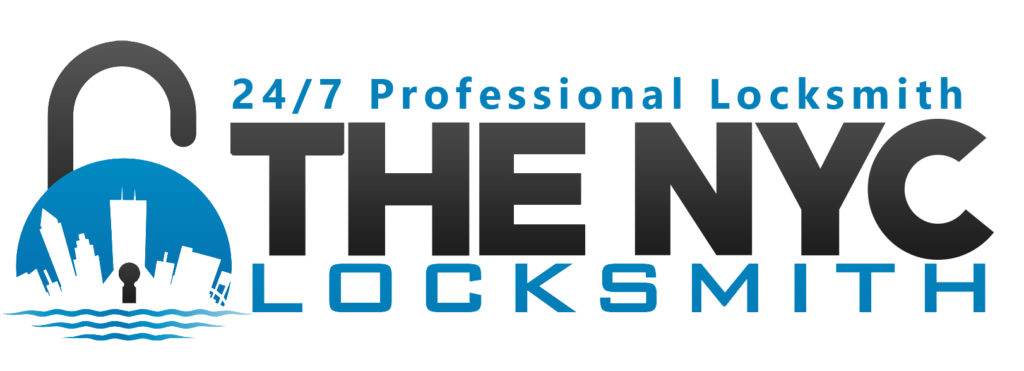Thinking about how to become a locksmith in New York City? You’re not alone. Locksmiths play an important role in keeping homes, businesses, and vehicles secure. From helping someone who’s locked out of their apartment to installing high-security systems for businesses, locksmiths are always in demand. If you’re ready to start a career that is both practical and rewarding, this guide will walk you through the entire process, step by step.
Step 1: Understand What a Locksmith Does
Before diving into training, it’s important to understand the responsibilities of a locksmith. Many people think locksmiths only unlock doors. That’s not the full picture. Locksmiths work with all types of locks and security systems.
Some common tasks include:
- Installing and repairing locks in homes and businesses.
- Duplicating and cutting keys.
- Working with safes, vaults, and secure cabinets.
- Installing electronic and keyless entry systems.
- Responding to emergency lockouts, often outside regular business hours.
Locksmithing is a hands-on job. You need attention to detail, patience, and problem-solving skills. If you enjoy working with your hands and helping people, this career can be very satisfying.
Also read: How much does a locksmith cost in NYC?
Step 2: Complete Your Training
You don’t need a college degree to become a locksmith, but proper training is essential. In New York City, there are several ways to gain the skills you need.
Charles Stuart School
The Charles Stuart School is the only licensed locksmithing school in New York State. They offer courses that cover basic, intermediate, and advanced locksmithing. Their programs include training in key cutting, lock installation, safe work, and electronic locks. The basic course is about 900 hours long and takes roughly 10 months to complete.
Hostos Community College
Hostos Community College offers a locksmith certificate program that can be completed in about 90 hours. It’s shorter than other programs but still provides a solid foundation in locksmithing. You will learn practical skills that prepare you for entry-level work.
Online Training Options
If in-person classes are not convenient, online courses are an option. Programs like the Locksmith Career Diploma from Penn Foster provide comprehensive lessons in key areas of locksmithing. These courses allow you to learn at your own pace and often include practice exercises you can do at home.
Step 3: Gain Hands-On Experience
Training is just the beginning. To really master locksmithing, you need practical experience. There are a few ways to gain it:
Apprenticeship
One of the most common paths is to work as an apprentice under a licensed locksmith. Apprenticeships give you real-world experience while learning directly from a professional. You will get exposure to different types of locks and security systems and learn how to handle customers.
Entry-Level Jobs
Another option is to start as an assistant in a locksmith shop. This allows you to observe professionals, learn the tools of the trade, and develop your skills gradually.
Personal Practice
Even outside of work or school, practicing on your own can be very beneficial. Setting up a small workshop at home with basic locks and tools lets you experiment and improve your skills safely. Practice makes perfect, and locksmithing is no exception.
Step 4: Obtain Your NYC Locksmith License
In New York City, you cannot legally work as a locksmith without a license. The licensing process ensures that locksmiths meet safety and legal standards. Here’s what you need to do:
- Complete a licensing application through the NYC Department of Consumer and Worker Protection (DCWP).
- Provide a valid photo ID and passport-sized photo.
- Submit certificates from your training program to prove your skills.
- Complete a criminal background check and fingerprinting.
- Pay the required application and fingerprinting fees.
- Obtain recommendations from at least two licensed locksmiths who can vouch for your abilities.
The licensing process can take a few weeks to a few months. It’s important to complete every requirement carefully to avoid delays.
Step 5: Continue Education and Certification
Being a licensed locksmith is just the start. Technology in the security industry changes constantly. To remain competitive, continuous education is essential.
Industry Certifications
The Associated Locksmiths of America (ALOA) offers certifications such as Registered Locksmith (RL) and Certified Professional Locksmith (CPL). These certifications demonstrate your professionalism and commitment to the trade.
Workshops and Seminars
Attending workshops and industry seminars can keep you updated on the latest tools and techniques. These events also provide networking opportunities with other locksmiths and business owners.
Specialization Courses
As you gain experience, you may choose to specialize in areas such as automotive locksmithing, safe installation, or high-security systems. Advanced courses can provide expertise in these niches, making you more marketable.
Step 6: Start Your Locksmith Career
Once you have training, experience, and a license, it’s time to start your career. There are several paths you can take:
- Join an established locksmith company. This provides steady work and mentorship from experienced professionals.
- Start your own locksmith business. If you have an entrepreneurial mindset, running your own company allows you to set your schedule and choose your clients.
- Focus on a niche market. Specializing in areas such as commercial security, automotive locksmithing, or safes can lead to higher-paying opportunities.
Marketing yourself effectively is also key. Build a professional website, get listed in local business directories, and consider online reviews to attract clients. Word-of-mouth referrals can also be a powerful tool in NYC.
Step 7: Essential Skills for Success
Beyond training and certification, some personal skills can help you thrive as a locksmith:
- Mechanical aptitude: You should understand how locks work and how to manipulate them safely.
- Problem-solving: Each lock or security system can present a unique challenge.
- Customer service: Locksmithing often involves working with people in stressful situations, so patience and professionalism are important.
- Attention to detail: Mistakes can compromise security, so accuracy is crucial.
- Business skills: If you plan to run your own business, you’ll also need basic accounting, marketing, and management skills.
Developing these skills will help you stand out and succeed in the competitive NYC market.
Step 8: Take the First Step Today
Becoming a locksmith in NYC takes effort, but it’s a rewarding career with plenty of opportunities. Start by researching training programs and planning your path. Whether you choose classroom learning, apprenticeships, or online courses, gaining skills and experience is key. After that, focus on licensing, continuing education, and building your career.
Locksmithing is more than just unlocking doors. It’s about providing safety, security, and peace of mind to your community. By following this step-by-step guide, you can turn your interest into a lifelong, stable career.
Take action today. Begin your training, plan your path, and open the door to a successful locksmithing career in New York City.
Do you need to hire a locksmith in NYC? Contact us now; our locksmiths are well-trained and experienced. We provide commercial, residential, and automotive locksmith services with guaranteed results.

